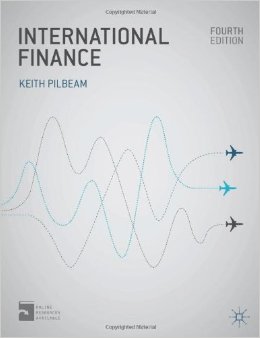
Professor of International Economics and Finance City, University of London
Contributor's Links:
BusinessEconomics.com
Keith Pilbeam is a Professor of International Economics and Finance at City University of London, UK. He obtained his PhD from the European University Institute in Florence (EUI.eu) where ...more
Keith Pilbeam is a Professor of International Economics and Finance at City University of London, UK. He obtained his PhD from the European University Institute in Florence (EUI.eu) where he also spent time as a visiting Professor. He undertakes consulting work for a number of City financial institutions and advises the UK Foreign Office on international economic issues. President of the International Economics and Finance Society (UK) iefs.org.uk and General Secretary of the European Economics and Finance Society eefs-eu.org, he is also author of three books International Finance, Finance and Financial Markets and Exchange Rate Management (all published Palgrave Macmillan). His research has been published in numerous well known economics and finance Journals such as the Journal of Banking and Finance,Oxford Economic Papers, the International Journal of Finance and Economics, Journal of Economic Behavior and Orgainzation, International Economics and Economic Policy, the Annals of Finance and Applied Economics. He is formerCo-editor of the Journal of Economic Asymmetries (Elsevier). and is Associate Editor of Economic Modelling (Elsevier)less



Latest Comments